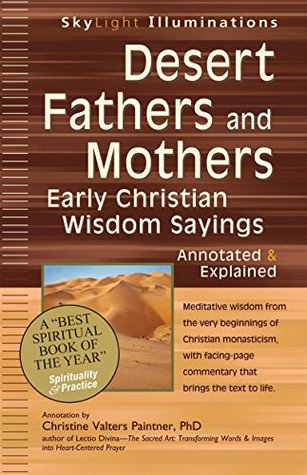Kindle Notes & Highlights
Read between
November 8, 2016 - November 2, 2017
Alan Jones, former dean of Grace Cathedral in San Francisco, writes that those who are willing to take the journey into the desert have two main features: “a heart and mind willing to pursue the truth wherever it may lead (and the ability to acknowledge that they may be wrong); and the kind of sensibility (which is the joining of the mind and heart) that is captive to wonder, mystery, and awe.
My fear is that much of what we call “spirituality” today is overly sanitized and sterile, far removed from the anguish of pain, the anchoredness of place. Without the tough-minded discipline of desert-mountain experience, spirituality loses its bite, its capacity to speak prophetically to its culture, its demand for justice. Avoiding pain and confrontation, it makes no demands, assumes no risks…. It resists every form of desert perversity, dissolving at last into a spirituality that protects its readers from the vulnerability it was meant to provoke. The desert, in the end, will have none of
...more
We do not have to journey to the literal desert to encounter its power. Each of us has desert encounters—experiences that strip away all our comforts and assurances and leave us to face ourselves directly. When illness, death, or loss of any significance visits us, we are thrust into the landscape of the desert. Each of us can benefit from the wisdom of the desert fathers and mothers, who speak to us across time about the meaning and grace possible there. The symbolic, yet very human, dimension of life in the desert is common to us all.
The desert is not a place of personal retreat, but a place of spiritual revolution.
A desert of the spirit: a place of silence, waiting, and temptation. It is also the place of revelation, conversion, and transformation. A true revelation is a very disturbing event because it demands a response; and to respond to it means some kind of inner revolution. It involves being “made over,” being made new, being “born again.” The desert, then, is a place of revelation and revolution. In the desert we wait, we weep, we learn to live.
The desert is a place of deep encounter, not of superficial escape. The ultimate paradox of the desert is that to find ourselves in it, we have to relinquish everything we think we know about ourselves.
As theologian John Chryssavgis puts it, “The desert produced healers, not thinkers.
The desert is a place to enter into the refiner’s fire and be stripped down to one’s holy essence. It is a threshold place where you emerge different than when you entered. It is where Jesus began his ministry. It is where each of us is called to begin our renewed path toward the Divine.


